Holly Golightly - Interview Part 1
by Mark Rowland
published: 18 / 7 / 2003
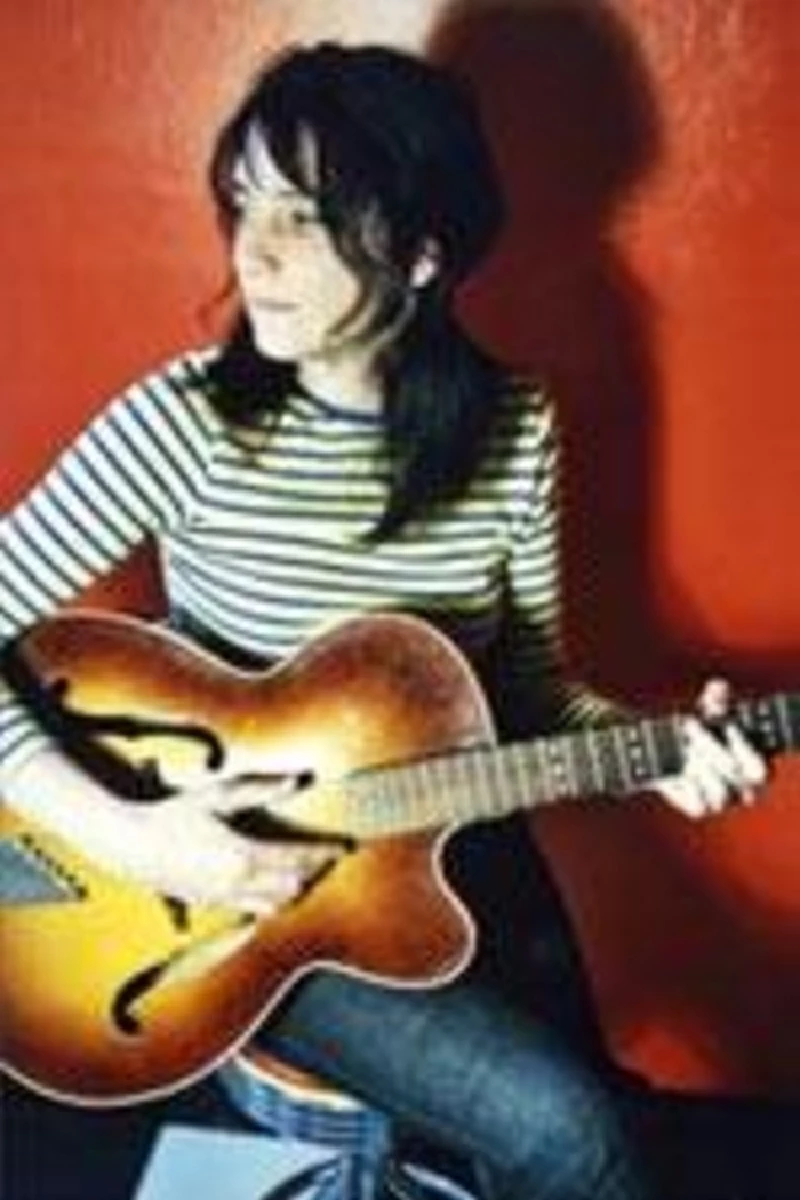
intro
Holly Golighty has worked with the White Stripes, Mudhoney and Billy Childish, and has just released her 11th full-length album, 'Truly she is None Other'. In the first part of a 2 part interview, she talks to Mark Rowland about her long career
The area in which I live isn't exactly the nicest of places. I've lived in Chatham, a town in Kent, in South East England, all my life, and I can't say there's ever been a time where I've actually liked it there. Let me put it this way- ask anyone from Chatham what their hobbies are, and there's a 75% chance that they'd answer: "Fighting and breaking stuff." So, I don't really go right into town that much. Despite this, I can't help feeling quite proud of Chatham and the Medway towns, because, like all the best crappy, dead-end towns, Chatham has produced some really great bands and artists. Billy Childish, the garage rock legend, comes from and actually still lives in Chatham. During the early 90's, when Billy was in Thee Headcoates, another band from Medway were making a name for themselves alongside them. The all girl Headcoatees were often backed by Thee Headcoates, and were a kind of punk rock version of the girl groups of the 60's. Thee Headcoatees called it a day in 1999, but the members of the band had solo careers for a long time before then. The best known solo Headcoatee has to be Holly Golightly. She released her first solo album, 'The Good Things', in 1995, and since then, hasn't looked back, releasing absolutely tonnes of albums and singles, and collaborating with many artists, including Billy Childish (unsurprisingly), Mudhoney, Rocket from the Crypt, and most recently, the White Stripes, appearing on the last track of their new album 'Elephant', 'It's True that We Love One Another'- my favourite track on the album. This guest appearance on 'Elephant' has created a big press buzz around Holly, who has just released her eleventh full-length, 'Truly she is None Other', an extremely good album with all the typical elements of a Holly Golightly album: great blues, folk, R'n'B (the original kind) and rock 'n' roll songs, very 60's-esque, but still with a modern freshness and plenty of punk attitude. Oh, and she's got a great sounding voice too. In an extensive phone interview, which will be continued next month, Holly spoke to us both about her time with the Headcoatees, and also her prolific solo career. PB : Your music has its sound rooted in the blues- did you listen to that kind of music growing up? HG : I was a punk rocker, and I got into R'n'B when I went out with a Mod, who introduced me to stuff I could dance to, and he taught me to dance good, and it got me interested in playing stuff that I wanted to bring to other people for the same reasons. I listened to a lot of R'n'B in my formative years when I was still developing my tastes, and got into gospel and blues a bit later on, which was kind of a natural progression from just like dance music. I was most interested in it in my late teens, going to see bands doing R'n'B covers and all that, so yeah in the later stages of my adolescence, but growing up, no, because nobody listens to music growing up. I just listened to what everyone else listens to when they're growing up- the Beatles, or whatever else you're mum and dad have around the house. It's when you start developing your own tastes and going in your own direction, that's what I would call development. It's a staple diet in my house, I don't really listen to anything else, I'm quite narrow in my view. PB : Your sound is quite diverse despite coming from the same place. Have you tried anything different on your new record? HG : I can only do what I can do, so doing blues covers, or doing soul covers, I mean I do 'em, but I tend to make them into my songs as much as I can, because there's only so much that somebody who's white and British can do with a blues song, so the best thing for me to do is to make it sound as natural to me as possible, rather than doing some kind of karaoke soul vocal. Do you know what I mean? PB : Yeah. HG : I'm in a gospel choir, which helps (laughs). And I do go to choir practice, which is really good singing practice; I mean I don't really know how to sing, so it's good to sing against other people that really can do it. But I think the timbre of my voice is that of a white, British person, a girl singer, who can only do what she can do, I mean I'm not 20 stone and black, so I don't have the belt that I would like to have, you know, or certainly don't aspire to make stuff sound like that, so invariably, things come up sounding like country blues sung by white people, because that's what I am. PB : Makes sense. HG : There's a way it's gonna sound if you do a certain type of song with a certain type of voice. It's gonna go in the same direction. That accounts for the covers, but with the songs I write myself I stick to a very similar vein mostly, and I can pull off that sort of girl group stuff because I like doing backing vocals so much, so I think one of my strong points is to be able to do harmonies and things like that, I've got quite a good ear for that sort of thing from singing in a girl band for a long time, and I would say it's varied, no two tracks sound the same, but certainly they all come from the same place. PB : You've been very prolific over the course of your solo career- about ten albums over eight years. HG : It's eleven now. PB : Yeah of course, I forgot about the new one! HG : It's actually longer than eight years really, since I put my first record out, and I think if you spread that over the course of time, it averages to about an album a year, maybe a couple, because there's a few live albums in there which don't really count. I think that anybody could hope to produce like 14 reasonable songs over the course of a year. It's not really that many. Then of course there's a lot of singles. Obviously there's an awful lot of singles as well. I mean it is prolific. It's probably a massive output compared to the releases of some people, but then if I was given six months to record an album, I'd spend about five and a half of them not really knowing what to do with myself, a week recording them, and then another week going out drinking with the people I recorded them with, I work quite fast, and the people I work with work with work fast as well. We've all known each other for a long time, so we generally pull it all together pretty quick. PB : Do songs come easily to you, or does it take more than one attempt to get songs sounding right? HG : Yeah I would say. PB : What kind of things inspire you lyrically? Are lyrics important to your songs? HG : Sometimes they are, I mean I write about the same things most people do, ike relationships, and fucking, and dancing, all the same things that everybody writes about. Sometimes I might be particularly inspired, I might be particularly happy, or particularly miserable, but those times I don't feel like writing songs. It's more sort of an even keel than that. I can usually write songs to a brief. If someone says I'd like a song that sounds like this about this, I could do that, but I tend to collect a lot of bits of paper with like one line written on them, and like sift through 'em, and eventually come up with something from things I might've written about 5, 10 years ago. I find these bit of paper all over the place, or written in the back of books. I just write a lot. If it wasn't songs, it'd be something else, you know, drivel, or just rants, or something else, you know. I think that's because of the formula I use for writing songs, I tend to stick to that same formula, and that makes it easy, because it's like limericks, or anything like that. It's pre-determined, the kind of thing you're going to do, and I like that. That's a constraint. I mean, there's not gonna be a concept LP at any time soon. PB : Oh well, most of them aren't very good anyway. HG : There you go- seven minutes of shit, at least I'm only doing mine about three minutes long (Laughs). PB : You do a lot of tours in America don't you? HG : Yeah, I like playing there. PB : Do you find that people are more receptive to your music there than in Britain? HG : They have been. I don't play here very much, actually. In the last couple of years, I've played here about four times. I've got this theory that people who like to listen to live music here are of the minority. If you think of it in those terms, and if something is a minority herein America even if it is a minority, it'd be a lot larger, do you know what I mean? There's that many more people, and it's that much bigger, and I think that the good response over there is partly due to the numbers, generally. I think they're a lot more open as well. They have a culture of bands travelling round playing. They've developed and embraced that culture much more than we have. I mean, bands don't get looked after very well here unless they're at the pinnacle of their career. Bands there get fed, and somewhere to sleep, and sort of have a network, a reciprocal network, and the whole thing works a lot easier there. I've done it for this amount of time because it's easy, and I've made a lot of friends there as a result. PB : They do have a much better understanding of music there, don't they? HG : You can play music there and make a living even if you're not famous, because there's that many more people to play to. Generally, there's that many hands in pockets, you know. PB : Where is you're favourite place to play live? You can be as specific or as vague as you want. HG : I did play in London, I played at the ICA a couple of weeks ago, and that was the best show I've ever played in London, when the show was packed, and everyone was dancing, and that took me aback a bit, because I hadn't played in London for a while, and then I played in London a couple of weeks after and it made me remember why. It's a random factor, unless you're a household name here really you can't be guaranteed any kind of turn out. I do think there's kind of an element of having to take things away from home for people to be really into them. I mean, American bands do really well here, and not necessarily quite so good in there home towns. I don't really have a preference. I like playing, but I like playing to people who are gonna dance, I mean geographically it's no specific place. I like playing in New York, and I like playing in Chicago. There are good crowds. People are into it. PB : With your, er, hold on. Sorry if I'm being a bit waffly. HG : No, you're doing alright. PB : I haven't really done that many phone interviews you see. I'm probably better at doing face to face interviews. HG : You could've come round! Where are you? PB : I'm in Chatham. HG : Are you really? PB : Yep. HG : What're you doing in Chatham? PB : I live here. HG : Cor Blimey. I lived there for twelve years. PB : Horrible innit? Although I do see Billy Childish every now and again. I' ve not spoken to him yet. I want to, but I haven't had a chance really. HG : You should do. You should say hello to him. He'd be thrilled if he got recognised. PB : I always see him on his bike. HG : Yeah, he rides a bike around. With his kiss-arse shorts on (Laughs). PB : I was actually gonna ask a question about him. You did an album of duets with him. Do you think you're ever going do another album like that with him or anyone else? HG : I want to do a duets album with lots of different people singing. I know a lot of people, like male singers who're really good, and also a lot of female singers. I plan to do a record with Ludella, she was in the Headcoatees- She lived in Chatham as well, and Fab who's in a band called the Bristols, which is a band that Liam from Toerag has got together, doing an all girl record with them, so we get to do lots of girly backing vocals,and we'll choose the songs. It'll probably be all covers because that'll be easier for everybody, and also I'd like to do a duets EP with lots of different people whose songs I like or whose voices I like, just to see what that sounds, like. Yeah, there's endless records I'd like to make. I'm not running out of ideas. I'm just getting started where I can exploit the interest in putting my records out. I mean I've never been short of people wanting to put my records out, but I've largely worked with Damaged Goods. I think that's a relationship that works really well. Bruce, the owner, and I live really close to each other and we're good old friends, and I think he'd have first refusal on whatever I did, but if he didn't want something for whatever reason I'm sure somebody else would, so I can just sort of have fun with my friends. PB : In terms of collaborations, is there any one person you would really like to work with at some point in your career, someone that inspired you or something like that? HG : Well I'd like to do some more singing with Billy at some point. I can't really see any time where that would happen, but it might, you never know. We do work good together. We have a similar ethos, and have a similar group of influences. We have a lot in common in that respect. There's not really one person in particular that I can think of that I'd like to work with. I like playing around, and seeing what different things sound like, Before that duet with the White Stripes I'd done some songs with lots of other people that I liked equally as much, but that have been more surprising to me. The track with the White Stripes is actually closer to what I do than really what they're known to do. It's more my kind of song, and some of the other things I've been involved with, like doing shows with Mudhoney and Rocket from the Crypt and stuff, is more kind of leftfield. It's quite odd that they wanted me specifically to do this singing with them, but they've been interesting because they've really been out of my world, and really into different stuff, so I enjoyed doing those, at least just as an exercise I enjoyed doing it, and it's a bit of a challenge to sing like a rock vocals and try and make it seem convincing or have some conviction you know. No, not really one person in particular, just a lot of people. PB : Do you find when you do these collaborations that bands approach you specifically for songs? HG : Usually I've been introduced to people, especially American bands I've met because I've done a lot of touring and so have they and quite often we've put stuff out on the same labels. That's how I've met them really, because we'd either be playing together or were introduced by somebody who ran a label. I've never been approached- I mean formally approached- by somebody I didn't know, so that hasn't come up, really, I don't really know if there's any bands out there who think "Yes, that's the voice we must have". I'm sure that the collaborations that I've been involved in have been rooted in us having empathy for each other, and being friends, and wanting to do something together. PB : That's what happened with the White Stripes isn't it? I have to bring that up really, I know that you must've answered about a million questions on them already. HG : (Laughs) Well, there's only so much I can say isn't there? I mean it's not my song! PB : Yeah I know! I was just gonna say that that came about through touring, didn't it? HG : Yeah, we put stuff out on the same label, in America, and their first couple of LPs got sent to me, and I was living in San Francisco, and when they came to town they rang me up, and we went out and took 'em to the seaside, and gave them something to eat, and we got to be friends like that. We had the same booking agent. By chance we always had the same booking agent, so we had a lot of common friends. PB : You've been living in quite a lot of different places! HG- Not really, I lived in Rochester near Chatham for almost twelve years, nearly. I lived there on a boat. Then I lived in San Francisco for almost two years,about 18 months, and then I came back to London. So , no, I haven't moved around much at all! (laughs). I mean in all those years I've only lived in three places. That's probably less than most people! PB : Yeah, ok, I got that wrong. I think Rochester's a nice place. HG : Yeah, well I lived on a boat. It wouldn't have mattered where I was really, because I used to not be there. I mean I didn't socialise, Obviously all the bands were there, but I didn't hang around in town, so it doesn't really matter where I live. I just get on with my own thing, so I get myself set up in my little centre, you know, with my four track and all my equipment, and my friends come to me wherever I am, so I quite often have a house full of people who're on tour. I do at the moment, by coincidence, and on Friday morning I drop one lot of and pick another lot up (laughs). I mean it's ongoing. There's always people around wherever I am, which is quite nice, even though we're all sort of fragmented all over the world. We still manage to meet up and do something together. I'm a real homebody, I like to go travelling, but I like to go home, you know. PB : There is something good about stepping into your house after you've been away for a while and thinking, 'That was quite fun.' HG : 'But it's good to be home', yeah, I relish it. When I first came back from San Francisco, I was staying with Bruce for a while, and it wasn't really like my home, I was a guest for quite a long time before I decidedthat I was gonna stay in London, and I got my own place, but I wasn't certain that that's what I was gonna do for a period of time, and there was something that felt so transitory about that that I didn't like, which didn't make me happy, and as soon as I got my own place, and sort of planted my flowers and hung my curtains up. Everything was alright again, I had a home again, and it must be very important to me. I figured that through my period of not really having a home and being nomadic. I like to go on tour. I love it, but I like to be able to go home afterwards. I don't know how people travel if they don't have a home to go to. It makes it a completely different thing. PB- I think I know what you mean, I've never been on tour or anything, but I 'm pretty sure I know what you mean. The second part of this interview will be featured in next month's Pennyblackmusic magazine, Thelast photograph that accompnaies this article was taken by Bob Stuart and originalkly appeared on his website www.underexposed.org.uk
Picture Gallery:-
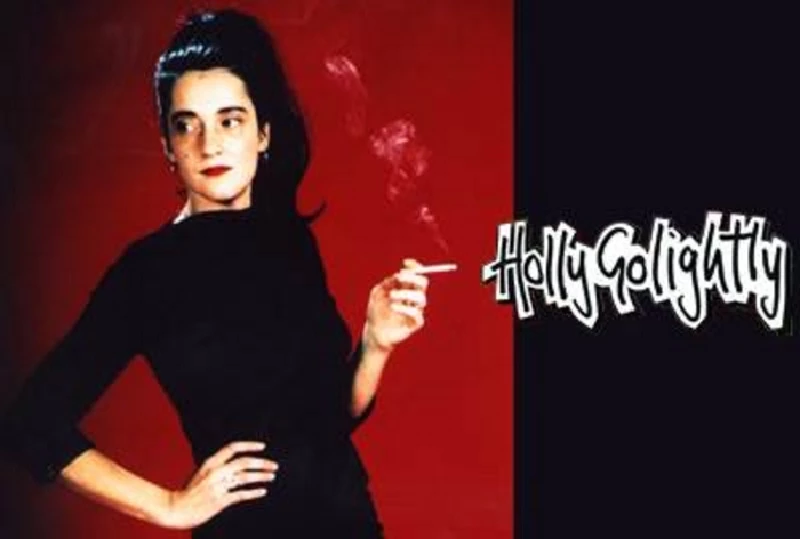
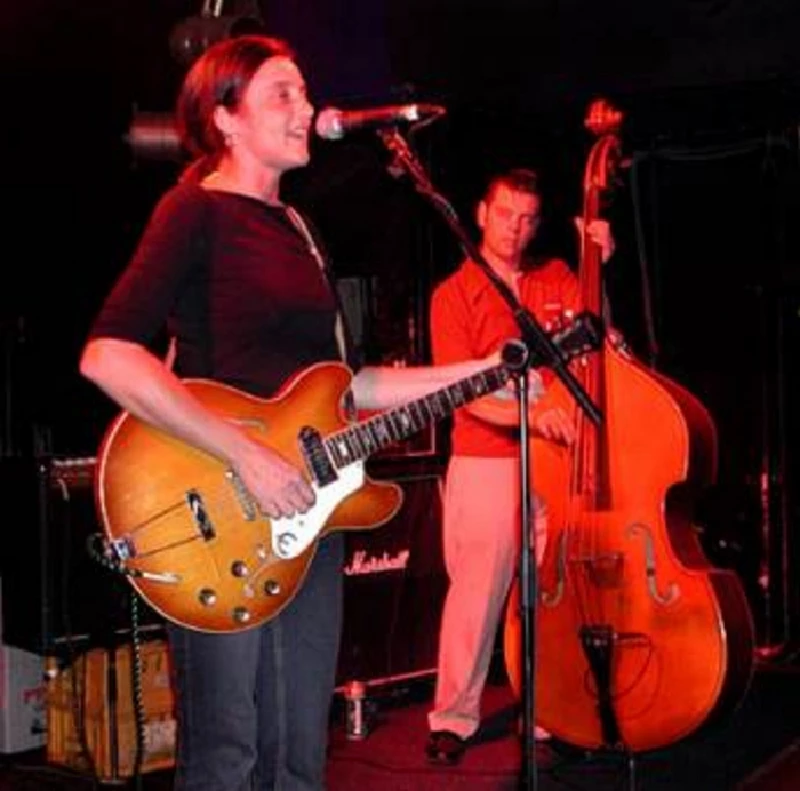
interviews |
|
Interview Part 2 (2003) |

|
| In the second part of our extensive interviewy, which is carried on from last month, with the "Queen of Garage Rock" Holly Golighty, she talks to Mark Rowland about her long-spanning musical roots and dancing... |
live reviews |
|
Cavern Club, Exeter, 23/9/2005 |
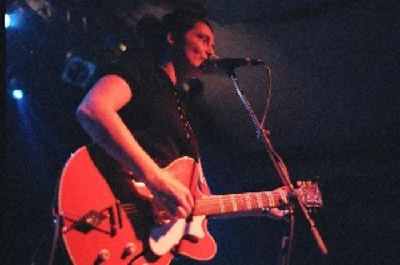
|
| At the Exeter Cavern Ben Howarth watches 50's and 60's influenced garage rocker Holly Golighty play an impressive set, but become upstaged by support act newcomer Rose Kemp |
| Dirty Water Club, London, 17/12/2004 |
| Barrymore's, Ottawa |
| Windmill, London, 7/10/2004 |
reviews |
|
Slowly But Surely (2004) |
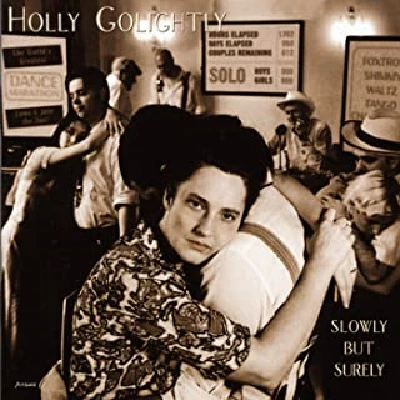
|
| Business as usual 60's-inspired garage rock 'n' roll from the much acclaimed Holly Golightly, back with a 13th album |
| Little Stars (2003) |
| Truly She Is None Other (2003) |
most viewed articles
current edition
Carl Ewens - David Bowie 1964 to 1982 On Track: Every Album, Every SongArmory Show - Interview with Richard Jobson
Colin Blunstone - Thalia Hall, Chicago, 16/7/2025
Bathers - Photoscapes 1
Visor Fest - Valencia, Spain, 26/9/2025...27/9/2025
John McKay - Interview
Editorial - July 2025
Sir Tim Rice - Interview
Bathers - Photoscapes 2
Billie Eilish - O2 Arena, London, 10/7/2025
previous editions
Heavenly - P.U.N.K. Girl EPManic Street Preachers - (Gig of a Lifetime) Millennium Stadium, Cardiff, December 1999
Oasis - Oasis, Earl's Court, London, 1995
Beautiful South - Ten Songs That Made Me Love...
Trudie Myerscough-Harris - Interview
Pixies - Ten Songs That Made Me Love...
Simon Heavisides - Destiny Stopped Screaming: The Life and Times of Adrian Borland
Paul Clerehugh - Interview
Doris Brendel - Interview
Prolapse - Interview
most viewed reviews
current edition
Amy Macdonald - Is This What You've Been Waiting For?Sick Man of Europe - The Sick Man of Europe
Phew, Erika Kobayashi,, Dieter Moebius - Radium Girls
Alice Cooper - The Revenge of Alice Cooper
Davey Woodward - Mumbo in the Jumbo
Lucy Spraggan - Other Sides of the Moon
Blueboy - 2
Cynthia Erivo - I Forgive You
Lapsley - I'm a Hurricane, I'm a Woman In Love
Philip Jeays - Victoria
Pennyblackmusic Regular Contributors
Adrian Janes
Amanda J. Window
Andrew Twambley
Anthony Dhanendran
Benjamin Howarth
Cila Warncke
Daniel Cressey
Darren Aston
Dastardly
Dave Goodwin
Denzil Watson
Dominic B. Simpson
Eoghan Lyng
Fiona Hutchings
Harry Sherriff
Helen Tipping
Jamie Rowland
John Clarkson
Julie Cruickshank
Kimberly Bright
Lisa Torem
Maarten Schiethart